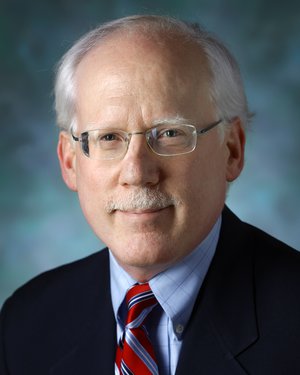Background
Dr. Robert A. Wood is a professor of pediatrics at the Johns Hopkins University School of Medicine and a professor of international health at the Johns Hopkins Bloomberg School of Public Health. An internationally recognized expert in food allergy and childhood asthma, Dr. Wood is chief of the Eudowood Division of Allergy and Immunology in the Johns Hopkins Children's Center.
He also serves as director and attending physician of the Pediatric Allergy Clinics at The Johns Hopkins Hospital and as director of the Pediatric Allergy Consultation Service.
Dr. Wood is an internationally recognized expert in food allergy and childhood asthma and has published more than 200 manuscripts in scientific journals, including The New England Journal of Medicine, JAMA, Pediatrics, and the Journal of Allergy and Clinical Immunology, as well as three books and numerous book chapters.
He is associate editor of the Journal of Allergy and Clinical Immunology and deputy editor of the journal Pediatric Allergy and Immunology, and was previously an associate editor of the Annals of Allergy, Asthma, and Immunology. He has served on the board of directors of the American Board of Allergy and Immunology and the American Academy of Allergy Asthma and Immunology, where he is now secretary-treasurer and president-elect beginning in 2018.
Dr. Wood earned his medical degree from the University of Rochester School of Medicine and Dentistry. He completed both a three-year pediatrics residency—serving as chief resident the final year—and a pediatric allergy and immunology fellowship at Johns Hopkins Hospital. Dr. Wood joined the Johns Hopkins faculty in 1988.


Patient Ratings & Comments
The Patient Rating score is an average of all responses to physician related questions on the national CG-CAHPS Medical Practice patient experience survey through Press Ganey. Responses are measured on a scale of 1 to 5, with 5 being the best score. Comments are also gathered from our CG-CAHPS Medical Practice Survey through Press Ganey and displayed in their entirety. Patients are de-identified for confidentiality and patient privacy.